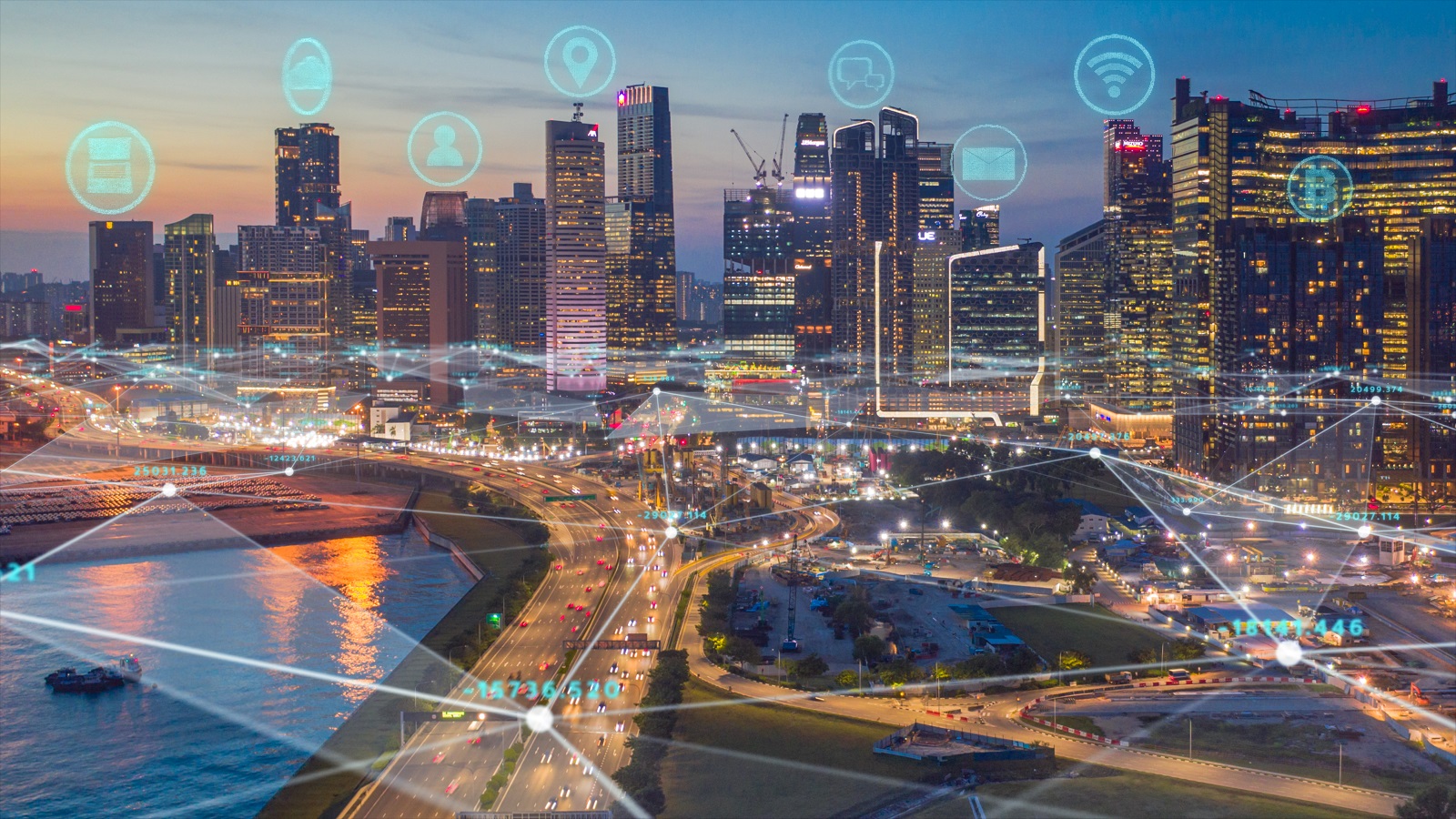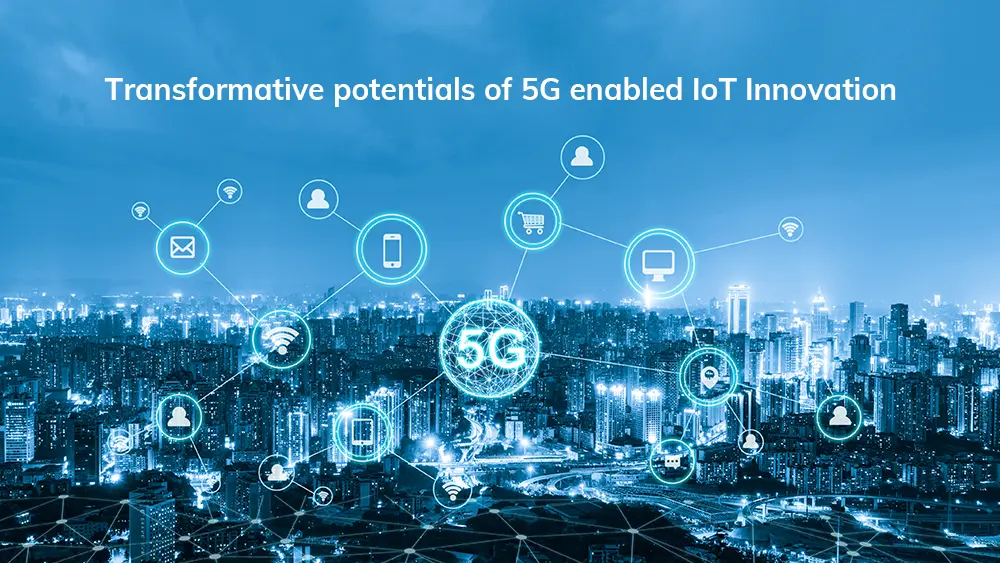justineanweiler.com – Smart cities are changing the way we live by using advanced technology and data to create more efficient, sustainable, and livable urban environments. These cities aim to solve challenges like traffic congestion, energy consumption, and environmental sustainability by integrating digital solutions. The goal is to improve public services, reduce waste, and enhance the quality of life for residents.
Key Features of Smart Cities
1. The Power of IoT (Internet of Things)
- What is IoT?: The IoT refers to a network of devices and sensors that are connected and can exchange data in real time. In smart cities, this technology plays a crucial role in monitoring and managing various city functions.
- Examples of IoT in Action:
- Smart Traffic Management: Sensors and cameras monitor traffic, adjusting signals in real time to ease congestion.
- Smart Waste Collection: Trash bins equipped with sensors signal when they need to be emptied, reducing unnecessary waste pickups.
- Air Quality Monitoring: Sensors track pollution levels, helping city officials respond to air quality issues.
2. Energy Efficiency and Sustainability
- Smart Grids: These digital energy systems distribute electricity more efficiently, adjusting supply based on real-time demand and integrating renewable energy like solar and wind.
- Green Buildings: Smart cities use eco-friendly building designs, featuring automated systems for lighting, heating, and cooling, all aimed at conserving energy.
- Renewable Energy Integration: Smart cities increasingly use solar panels, wind turbines, and energy storage systems to reduce their carbon footprint and reliance on fossil fuels.
3. Smarter Transportation Solutions
- Optimized Public Transport: Real-time data helps improve bus and train schedules, reducing wait times and making travel more efficient.
- Electric and Autonomous Vehicles: Electric vehicles reduce emissions, and autonomous vehicles, which are being tested in many cities, can help minimize traffic accidents and improve overall road safety.
- Smart Parking: IoT sensors direct drivers to available parking spots, saving time and reducing congestion.
4. Digital Public Services
- E-Governance: Residents of smart cities can access government services, pay bills, or file complaints via online platforms, making interactions with local authorities faster and more efficient.
- Improved Public Safety: Technology helps monitor and improve public safety through smart surveillance systems, real-time emergency responses, and predictive policing powered by AI.
5. Data-Driven Decision Making
- Big Data: Data collected from various sources like traffic sensors and public service platforms helps city officials make informed decisions. This data-driven approach allows cities to improve everything from waste management to energy usage.
- Predictive Analytics: Cities can use predictive analytics to anticipate issues like traffic jams or energy shortages, allowing them to act before problems arise.
Benefits of Smart Cities
1. Better Quality of Life
- Convenience: Smart cities offer conveniences like faster public transport, real-time service updates, and automated systems that make daily life easier for residents.
- Enhanced Safety: Smart surveillance and real-time emergency response systems make cities safer for everyone.
2. Environmental Sustainability
- Reduced Emissions: Smart cities optimize energy use, promote renewable energy, and reduce emissions through green transportation options, making them more environmentally friendly.
- Less Waste: Smart waste management systems reduce unnecessary garbage collection, lowering energy use and cutting down on pollution.
3. Economic Growth
- Job Creation: The development and maintenance of smart city technologies create new job opportunities in fields like IT, engineering, and green energy.
- Attracting Investments: Smart cities attract investors and businesses, especially in sectors focused on technology and innovation.
4. Efficiency in Urban Management
- Resource Optimization: Smart cities make better use of resources like energy and water, thanks to systems that monitor consumption and adjust supply in real time.
- Fast, Efficient Services: Digital public services reduce bureaucracy and make city operations more efficient, saving time for both residents and local authorities.
Challenges Facing Smart Cities
1. Privacy and Security Concerns
- Privacy: With so much data being collected, smart cities must ensure that citizens’ personal information is protected.
- Cybersecurity: As cities become more connected, the risk of cyberattacks increases. Protecting critical infrastructure from hackers is essential.
2. High Implementation Costs
- Initial Investment: Building the necessary infrastructure for a smart city, including sensors, networks, and digital services, requires significant financial investment. Many cities face challenges in securing this funding.
3. The Digital Divide
- Equal Access: Not all residents have equal access to the technology needed to benefit from smart city services. Bridging the digital divide is crucial to ensure inclusivity.
The Future of Smart Cities
Smart cities are evolving rapidly, and the future holds exciting possibilities:
- Autonomous Transportation: Fully autonomous buses, cars, and even flying taxis could change the way people move through cities.
- AI-Driven Urban Management: Artificial intelligence will play a larger role in city management, optimizing resources like energy and water automatically.
- Global Collaboration: Cities across the world are sharing knowledge and best practices to improve smart technologies and make urban living more sustainable.
Conclusion
Smart cities represent the future of urban living, where technology and data are used to improve efficiency, sustainability, and overall quality of life. By integrating innovations like IoT, renewable energy, and data-driven services, smart cities are tackling modern challenges like climate change and overpopulation. While there are still challenges to overcome, such as privacy concerns and costs, the rise of smart cities is paving the way for a more connected and sustainable future for everyone.
This version simplifies the explanations and ensures smoother readability while still covering all the key points about smart cities and their impact on modern life.





